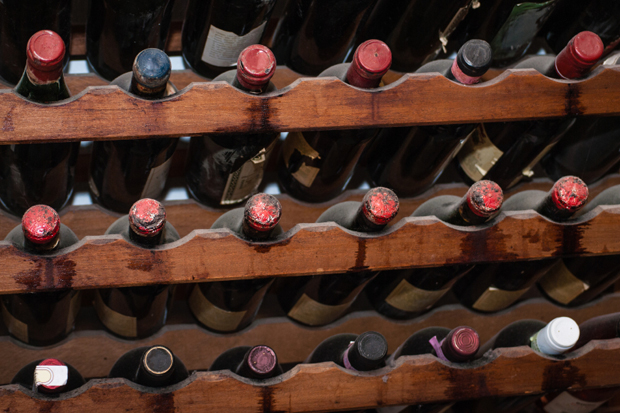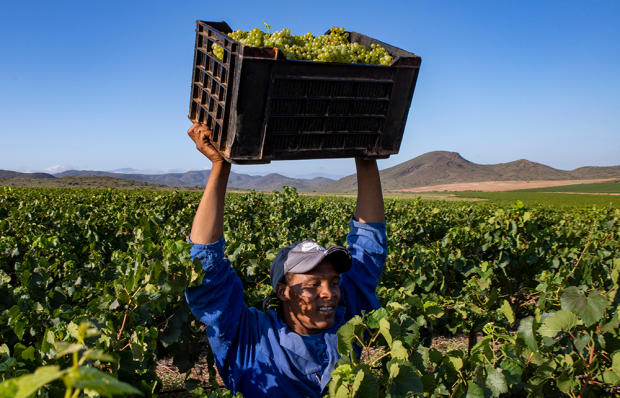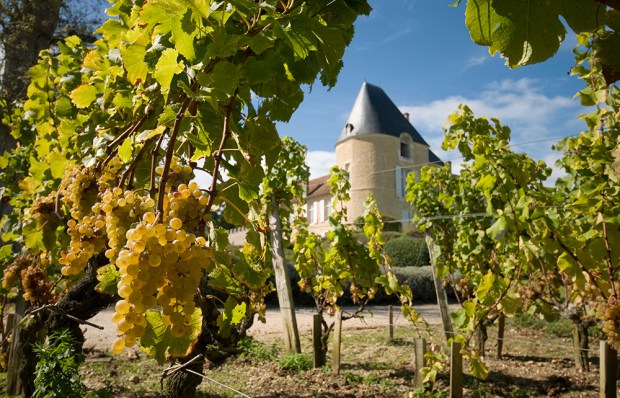There was a moment during the war when De Gaulle was being more than usually impossible. Roosevelt, furious, asked Churchill to convey his feelings. The PM summoned the Frenchman, who arrived, took off his kepi and sat down. Churchill launched into him. Unfortunately, the tirade was not recorded. By all accounts, few prosecution cases have been expounded more forcefully. It was a masterpiece of eloquence which lasted for 45 minutes.
Throughout, de Gaulle was impassive: not a flicker of facial muscle, let alone emotion. Churchill came to a final flourish, then stopped and glared. In response, de Gaulle rose to his feet, put on his kepi, saluted, turned and left. Churchill’s comment: ‘Magnificent.’ Despite frequent and mutual exasperation, those two understood each other better than either understood the feline Roosevelt: discuss.
We discussed our sweet enemy France at a recent meeting of the Odd Bottles, the most irregular but not least convivial drinking assembly in London. Apropos magnificence, we were talking about Anthony Barton, of Léoville-Barton, who has been praised on these pages, but neither often enough nor eloquently enough. That would require Churchill. Had Anthony been older, he could have helped to mediate between the English and the Free French. He is, after all, a blend of English, French and Hibernian. Wine-makers strive to create a harmony of fruit and tannins, not automatically compatible. In Anthony’s case, it has been a harmony of three great races. Perhaps the piquant complexity of his origins helped him to become such a superb vigneron.
From time to time, this column has been critical of the Bordelais. They often behave like an especially mean-spirited Balzacian patriarch. Always looking to exploit new markets, they are rarely loyal to established customers. But Léoville-Barton has been a shining exception. The wines are never cheap: what do we expect? But they are always good value. The same is true of the second wine, La Reserve de Léoville-Barton, which is a good way to introduce a youngster to serious claret. The other year, on the subject of youngsters, a great aristocratic household got in touch with Léoville-Barton. Although they always bought several cases a year en primeur, there had been an oversight; a failure to order the claret to be served at a dinner for the heir’s 21st. His birthday was in 1990, so the family would like ten cases of that vintage.
As it had been a great year, stocks were low to nonexistent. Only three cases were available. Then Anthony intervened. The family’s private cellars were plundered: still not enough. Phone calls to the chateaux of friends and rivals: do you by any chance have a case of two of our 1990? Prising them away usually required barter, often on unfavourable terms. But in the end, the noble vintage graced the noble celebration. Anthony was satisfied. Like the best Bordelais of yesteryear, he always wishes to ensure that his wines go to a good home. As befits his Irish heritage, he is a Burkean, thinking in terms of a compact between the dead, the living and the as-yet unborn. He would prefer Léoville-Barton to be drunk in households where the genius loci could tell of ancient vintages, joyfully consumed by men still present at similar occasions in the form of family portraits — while the cellars contain infant wines which will outlive many of those at today’s table.
The Bottles cannot offer such an exalted pedigree, but of late, Anthony has not been well. So we toasted his health in his own ’96 while electing him as president of our Gascon chapter. The wine was superb: it offered everything a mature claret of a serious vintage and a great house ought to provide. As the final drops were squeezed from the glass, we hoped that he was feeling as well as we were.
Got something to add? Join the discussion and comment below.
Get 10 issues for just $10
Subscribe to The Spectator Australia today for the next 10 magazine issues, plus full online access, for just $10.
You might disagree with half of it, but you’ll enjoy reading all of it. Try your first month for free, then just $2 a week for the remainder of your first year.















Comments
Don't miss out
Join the conversation with other Spectator Australia readers. Subscribe to leave a comment.
SUBSCRIBEAlready a subscriber? Log in